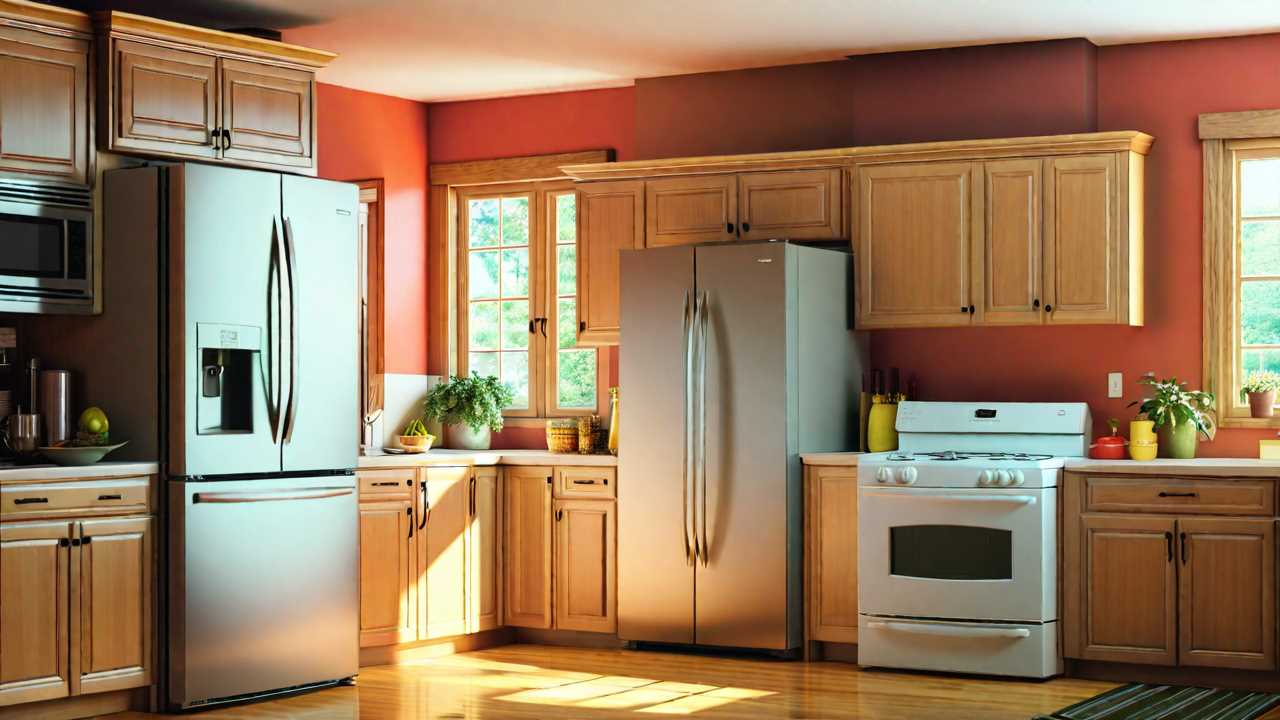
The Benefits of Energy-Efficient Appliances
As homeowners, we are always looking for ways to save money on our utility bills while also doing our part to protect the environment. One of the most effective ways to accomplish both of these goals is by investing in energy-efficient home appliances. These appliances are designed to use less energy than traditional models, which can lead to significant savings on your monthly energy bills. In addition, by reducing your energy consumption, you are also reducing your carbon footprint and contributing to a more sustainable future.
Energy Star Certification
When shopping for energy-efficient appliances, one of the first things to look for is the Energy Star label. This certification is awarded by the U.S. Environmental Protection Agency to appliances that meet strict energy efficiency guidelines. To earn the Energy Star label, an appliance must use 10-50% less energy than standard models, depending on the product category. By choosing Energy Star certified appliances, you can be confident that you are getting a product that is both energy-efficient and eco-friendly.
Refrigerators and Freezers
Refrigerators and freezers are two of the most energy-intensive appliances in the home, accounting for about 13.7% of a typical household's energy use. When shopping for a new refrigerator or freezer, look for models with high-efficiency compressors, improved insulation, and advanced temperature and defrost mechanisms. These features can help reduce energy consumption by up to 40% compared to older models. Another option to consider is a refrigerator with a top or bottom freezer, as these designs tend to be more energy-efficient than side-by-side models.
Washing Machines and Dryers
Washing machines and dryers are another major source of energy consumption in the home, accounting for about 5% of total household energy use. When shopping for a new washer, look for models with high-efficiency motors, advanced load sensing technology, and low water consumption. Front-loading washing machines tend to be more energy-efficient than top-loading models, as they use less water and require less energy to agitate the clothes. For dryers, look for models with moisture sensors that automatically shut off the machine when the clothes are dry, as well as heat pump technology that recycles heat to reduce energy consumption.
Dishwashers
Dishwashers are a convenient way to clean dishes, but they can also be a significant source of energy and water consumption. When shopping for a new dishwasher, look for models with advanced wash systems that use less water and energy, as well as soil sensors that adjust the cycle based on the level of grime on the dishes. Another feature to look for is a built-in water heater, which allows the dishwasher to heat water more efficiently than relying on your home's hot water supply.
Heating and Cooling Systems
Heating and cooling systems are the largest energy consumers in most homes, accounting for about 43% of total household energy use. When shopping for a new HVAC system, look for models with high Seasonal Energy Efficiency Ratio (SEER) ratings for air conditioners and high Annual Fuel Utilization Efficiency (AFUE) ratings for furnaces. These ratings indicate how efficiently the system converts energy into heating or cooling, with higher ratings indicating better efficiency. Other features to look for include programmable thermostats, variable speed motors, and zoned heating and cooling systems that allow you to control the temperature in different areas of your home.
Lighting
Lighting accounts for about 10% of a typical household's energy use, making it another important area to focus on when looking to improve energy efficiency. One of the easiest ways to reduce energy consumption from lighting is to switch to LED bulbs, which use up to 90% less energy than traditional incandescent bulbs and last up to 25 times longer. Another option is to install dimmer switches or occupancy sensors that automatically turn off lights when a room is not in use.
The Bottom Line
Investing in energy-efficient home appliances is a smart choice for homeowners looking to save money on their utility bills and reduce their environmental impact. By choosing appliances with advanced features and technologies, such as Energy Star certification, high-efficiency motors, and advanced sensors, you can significantly reduce your energy consumption without sacrificing performance or convenience. Whether you are replacing an old appliance or building a new home, taking the time to research and select energy-efficient models can pay off in the long run, both for your wallet and the planet.
 Family Craft ProjectsHome ImprovementCooking and BakingReuse and RecycleDIY GiftsEco-Friendly ProjectsDIY Home SolutionsSeasonal ActivitiesFun and GamesLearn TogetherPrivacy PolicyTerms And Conditions
Family Craft ProjectsHome ImprovementCooking and BakingReuse and RecycleDIY GiftsEco-Friendly ProjectsDIY Home SolutionsSeasonal ActivitiesFun and GamesLearn TogetherPrivacy PolicyTerms And Conditions
